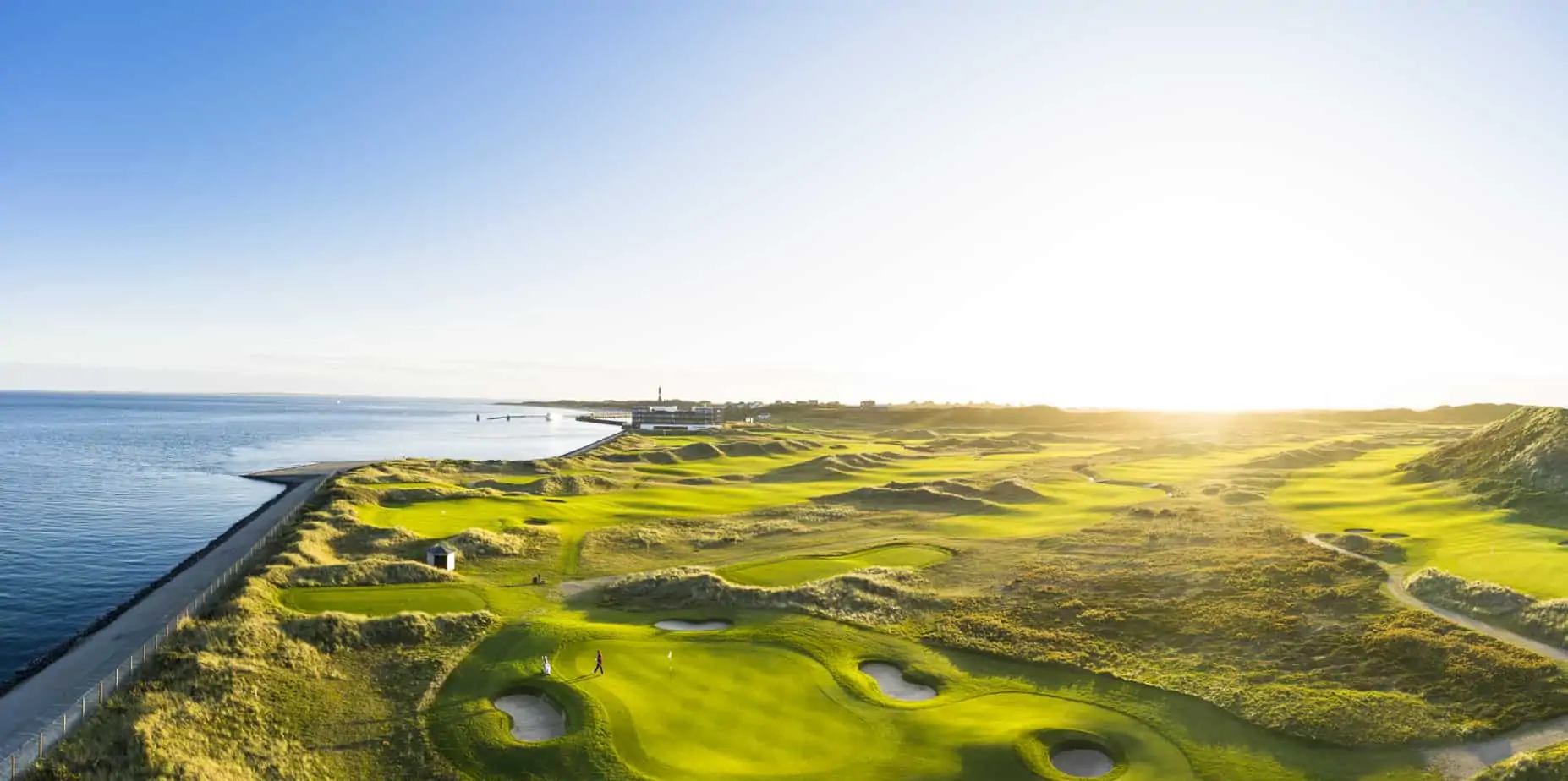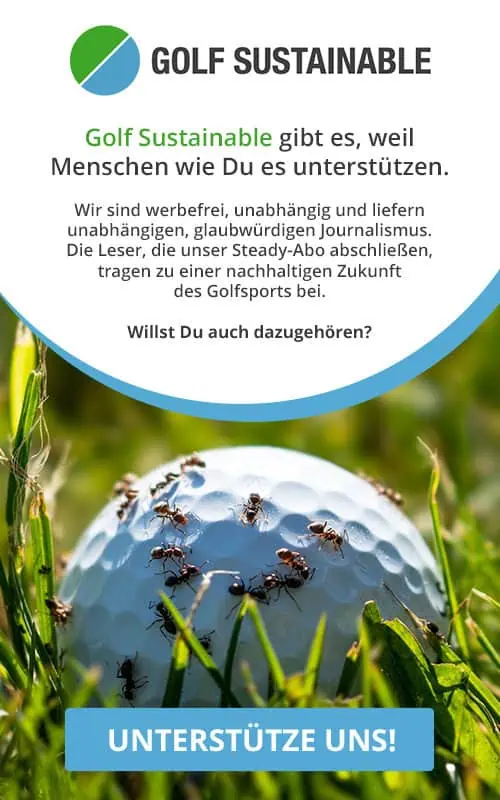Budersand Hotel: Luxury requires sustainability
Luxury hotel business without a sustainable aspect is actually no longer possible. Christian Matthiesen, marketing expert, says so. In December 2021, he was sitting in the bar of the 5-star resort Budersand on Sylt and starting to work on the complex of topics that has also gained in importance with the Corona pandemic: What do guests actually understand by sustainable holidays? How visible or hidden can sustainability be? And: When does the topic start to get on your nerves?
The Budersand Resort, opened in 2009 with its 18-hole golf course in Hörnum directly on the lake, is Schleswig-Holstein’s flagship when it comes to luxury holidays. Here the golfer meets the combination of a top hotel with a first-class golf course, which is otherwise very rare in Germany. Top quality within the building walls and outside the door where the tight links course moves at the tip of the island.
Sustainability as part of the basic concept
At the Budersand Hotel, the concept of sustainability is not new. There has been a separate combined heat and power plant from the start. Only paints from natural products are used for repairs, motion detectors and LED lamps ensure energy saving. Since 2015, every hotel room has also been offered as a Green Room. For 40 euros more per person and night, bed linen and towels are then made from fair-trade cotton. All care products in the bathroom are certified organic. The flowers on the table come from the island, and there’s German organic lemonade in the minibar.
Regionality in gastronomy
“We’ve been doing all that here in Budersand for a very long time,” says Matthiesen. Many of these are small things that are not noticeable at first glance. The halfway catering at the golf tournament is served in porcelain bowls, plastic packaging is taboo. A look at the breakfast buffet is like a foray through Sylt products: from horseradish to shrimp to bread – short delivery routes, support from regional producers. Appreciation of local products. In Budersand, these sustainability standards have been running skillfully for years.
And yet a lot has changed in the past two years: “When there was the lockdown, the island was almost closed and everyone on Sylt had time to go to the beach again, the feeling for the island and the appreciation has changed,” explains Matthiesen. The awareness that the small North Sea island with its large protected areas is finite in its resources has received nourishment.
Mobility on the island as a challenge
A feeling that subsequently coincided with the urge of the Germans for a safe holiday in their home country. Sylt has rarely been as popular as it was during the Corona pandemic – and not just in the classic high season, but all year round. “The reconciliation of tourism and a sustainable approach is the biggest challenge for us here,” says Matthiesen, looking towards the entrance of the hotel. The through road across the island begins behind the car park, the only road that leads from Hörnum towards Westerland. According to Matthiesen, traffic jams are a big issue here in the summer: “The pressure is increasing, especially when it comes to traffic. When the street is full in summer, nothing works. The infrastructure on the island is a challenge.”
Saving resources on the golf course
The question of personnel also depends on the infrastructure. The morning trip to the island isn’t just standard for Head Greenkeeper Stefan Hansen. The journey from the mainland to Sylt is complicated, and only those who offer an attractive job can get staff on the island. In any case, Hansen says, “I never want to leave here again.” Here in Hörnum, he tries to achieve top quality on the golf course and at the same time meet the requirements of a certificate such as ” Golf & Nature” that Budersand has been awarded.
Low water consumption, hard-wearing grass, newly created heathland, dune protection and fast, hard greens – these are the details that Hansen and his team stand for. This area hasn’t been easy in the past two years either: “It was a completely new experience that we actually always had a full place,” sums up Hansen. Sylt has developed into a golf destination in recent years. Links courses with their narrow fairways, the high dune grass, the heavy wind are often considered difficult: you have to face that in Budersand too. “People don’t want to be constantly frustrated because it’s too difficult for them,” summarizes Matthiesen. “Left golf is easy to play” is therefore the motto.
The topic of sustainability discreetly packaged
In general, he concludes, as a service provider in tourism, you are asked not to overload the topic of “sustainability”. The inconspicuous and constant integration into everyday hotel life, according to the realization here, is the best approach. “The fact is that the guest does not want to be dogged by sustainability issues at every step of their stay.” Anyone who books the luxury holiday expects peace and quiet. In Budersand right next to the Hörnum Odde he gets a large portion of nature experience at the Odde Hörnum and German links golf.









